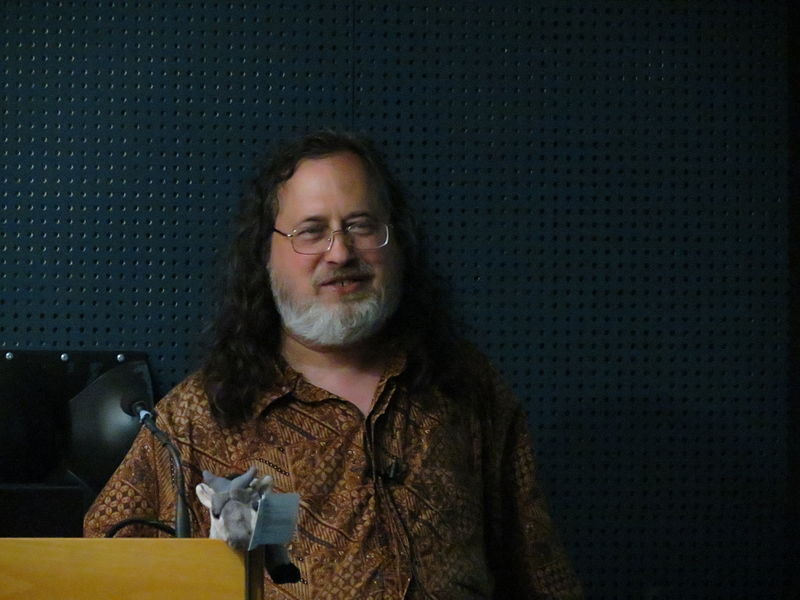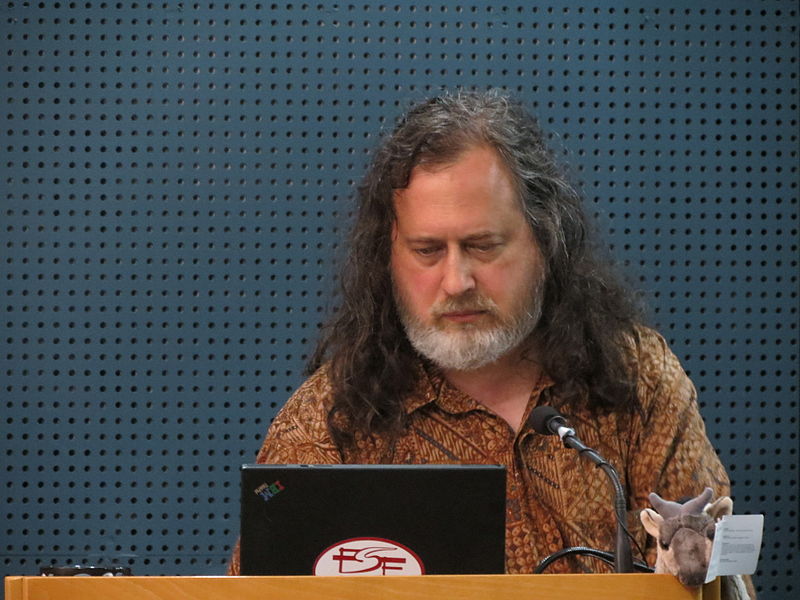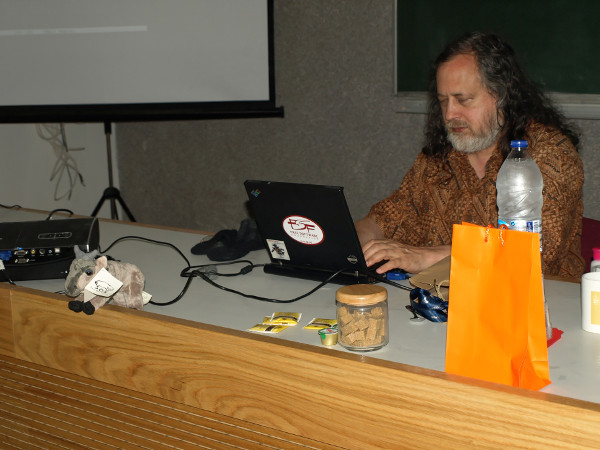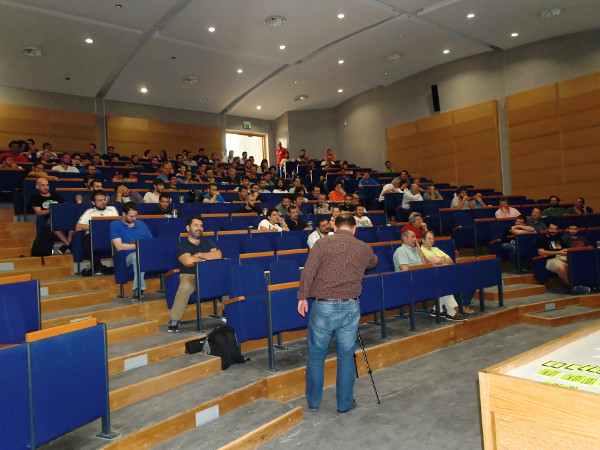We've been warning against the threat presented by the Trans-Pacific
Partnership (TPP) negotiations, particularly over the past few months,
given that time is running out to stop it. For the uninitiated,
TPP is a secret treaty that would trap participating countries into
laws that lock users down with DRM, software patents, and perpetual
copyright restrictions. TPP will also give corporations the power to
interfere with local policy decisions by suing governments if they try
to pass any laws or regulations that protect users. The danger is
particularly imminent in the U.S., where Congress is readying to grant
the Obama administration Trade Promotion Authority (TPA), meaning that
they would be giving up their right and duty to review and amend the
worst parts of the eventual treaty before the terms of the deal have
even been publicly released. The final vote in the Senate is set for
tomorrow, June 24th, so today may be the last chance to stop TPA. That
is why we've been pushing users here in the States so hard to fight
back now. But the harm caused by granting TPA unfortunately isn't
limited to what is hidden within the pages of TPP. Once granted, TPA
lasts for years and would enable the same abrogation of duty when it
comes to two other secret, international negotiations: the
Transatlantic Trade and Investment Partnership (TTIP) and Trade In
Services Agreement (TISA).
TTIP is in many respects similar to TPP, and covers much of the same
ground. But, whereas TPP covers agreements between the U.S. and many
Asian countries, TTIP address similar issues between the U.S. and the
European Union. Some documents have been made public for these
negotiations, though the actual negotiation texts for the
copyright and patents chapter is notably still secret. Despite that,
we can still draw some disturbing conclusions. Like TPP, TTIP would
grant proprietary developers supra-national power to interfere with
local laws and policies in the form of investor-state dispute
settlement (ISDS). TTIP also has provisions about software patents
that could lock the U.S. and EU into their current terrible
situation. Trying to end software patents locally is difficult enough
already, but if TTIP passes, for signatory countries there may not be
any way out. Ever fond of secrecy, the negotiators for TTIP are
pushing a possible expansion of penalties relating to trade secrets.
TISA has the potential for the most widespread impact, with Europe,
the U.S., and many more countries negotiating in secret. A recent leak
included a particularly nefarious term: a prohibition on governmental
mandates for free software. Article 6 states that "No Party may
require the transfer of, or access to, source code of software owned
by a person of another Party, as a condition of providing services
related to such software in its territory." Governments around the
world have come to understand the importance of free software to
ensuring a free society. Many governments have chosen to mandate the
use of free software in their offices and in their software service
contracts. Ensuring that government-used and -purchased software is
free for anyone to review, share, and modify promotes the safety and
security of the people. TISA would stop governments all around the
world from putting into action their dedication to the principles of
free software.
Even if Article 6 were modified or interpreted more narrowly to allow
free software mandates, it would still be extremely problematic. Even
if the section is simply meant to prevent governments from demanding
source from proprietary developers as part of their contracts, it
would still leave the same holes in security that only access to
source can provide. Even if a government isn't able to use free
software in a particular instance, it should still be able to demand
that source code be given to the government to ensure that the code
has no back doors or vulnerabilities. Furthermore, the government
should still be able to review source to handle bug fixes or make the
software compatible with other systems; governments shouldn't be
beholden to a single company for support and customization of the
software they pay for with tax dollars.
TPP, TTIP, and TISA all include the U.S. as a bargaining nation,
meaning that the deal on Trade Promotion Authority being negotiated in
the Senate right now could fast track all of them this week. But there
are other agreements that are as nefarious and must be stopped with
the same urgency. Case in point: the Comprehensive Economic and Trade
Agreement (CETA) between Canada and the EU. Like the other agreements,
CETA has terrible provisions, including a copyright extension and
anti-circumvention provisions for Canada. While the text is now
public, that publication came only after negotiations were complete.
While each of these agreements varies the trouble they would implement
slightly, they are all being negotiated in secret, and for good
reason: if people knew what was in them, they would fight back. And
that's exactly what we must do. These agreements are being put
together with tons of input from corporations and trade groups who
seek to benefit from the restrictions these treaties will
implement. The people they will control are not welcome at the table,
but we still have a voice. Now is the time to speak up and let the
leaders in every country subject to these negotiations know that these
bargains made in the shadows must be brought into the light to die.
The time to fight back is now. Here is how you can help:
- If you only have a moment to help, please spread the word by sharing
this article with your friends, or microblogging the following:
I oppose secret international trade agreements in all forms. Protect
free software by stopping #TTP #TTIP and #TISA (shortened link to
article)
Note that if you use Twitter for microblogging, you can do so in
a way that avoids using proprietary software.
-
If you are in the US, join EFF's action and write to your
representatives telling them not to grant Trade Promotion
Authority, and that you oppose these secret negotiations. EFF's
action uses the free software tool Phantom of the
Capitol. Today may be your last chance to stop TPA.
-
If you live in Australia, Brunei, Canada, Chile, Japan, Malaysia,
Mexico, New Zealand, Peru, Singapore, or Vietnam, contact your local
representative and let them know you oppose TPP.
-
If you live in the European Union, contact your local representative
and let them know you oppose TTIP, TISA, and CETA.
-
If you live in Australia, Canada, Chile, Hong Kong, Iceland, Israel,
Japan, South Korea, Liechtenstein, New Zealand, Norway, Switzerland,
Taiwan, Uruguay, Colombia, Costa Rica, Mexico, Panama, Peru, Turkey,
Pakistan, or Paraguay contact your local representative and let them
know you oppose TISA.
-
Canadian users should likewise contact their representatives to
demand an out from CETA.
-
Support our work representing you in this area by becoming an FSF
member or making a donation.















